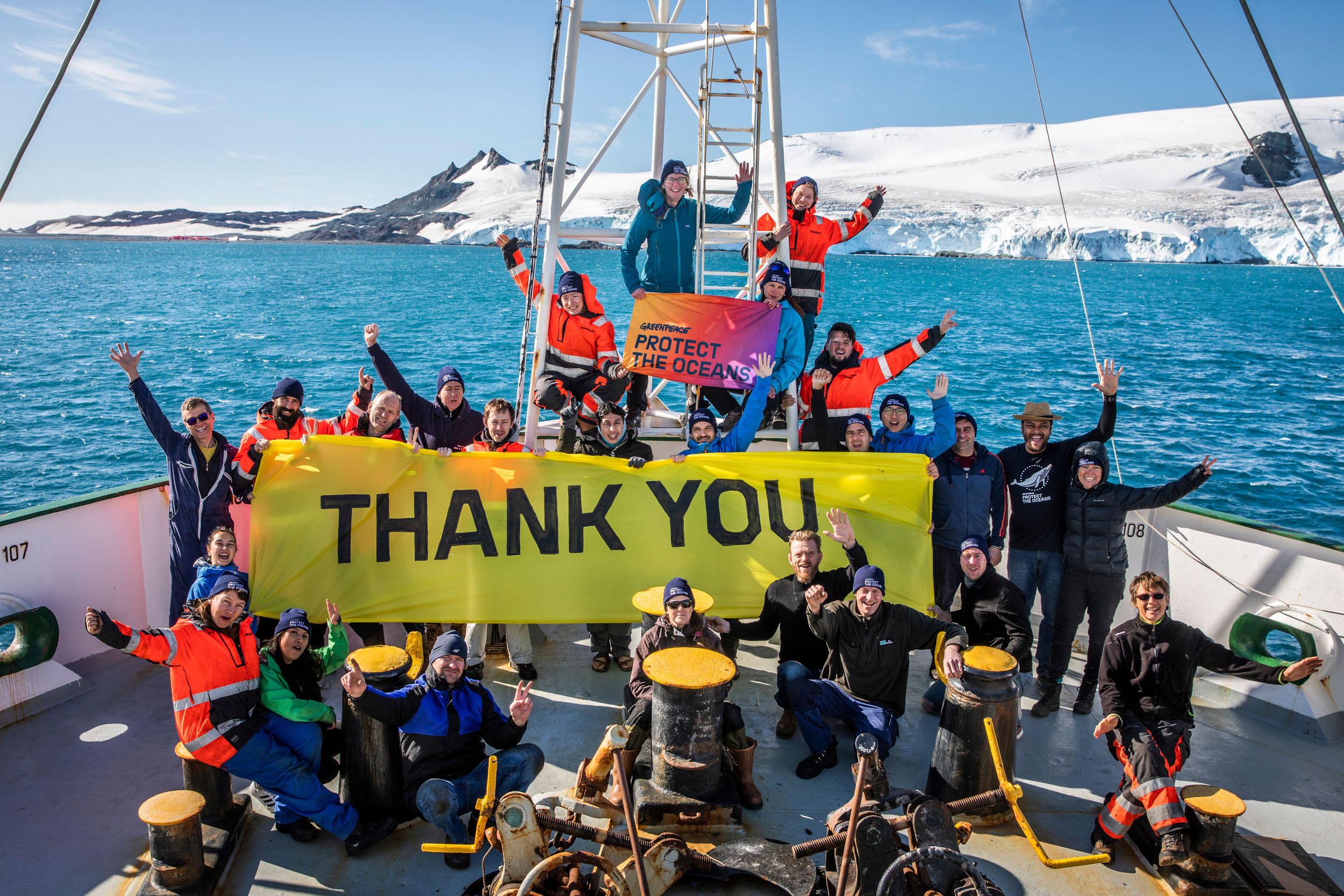In 2020, Covid 19 changed daily realities in every corner of the world. The crisis has exposed a system of inequality putting the health of the people and planet at risk.
And although the main priority is to save lives, the world also needs a green and just recovery from the pandemic. The broken food system needs fixing. The climate crisis needs tackling. And our forests need protecting.
With your help, Greenpeace has been able to continue building the movement for a green and peaceful future. And reflecting on this year, here are some highlights which were only possible thanks to your support.
January – investigating the climate crisis in Antarctica
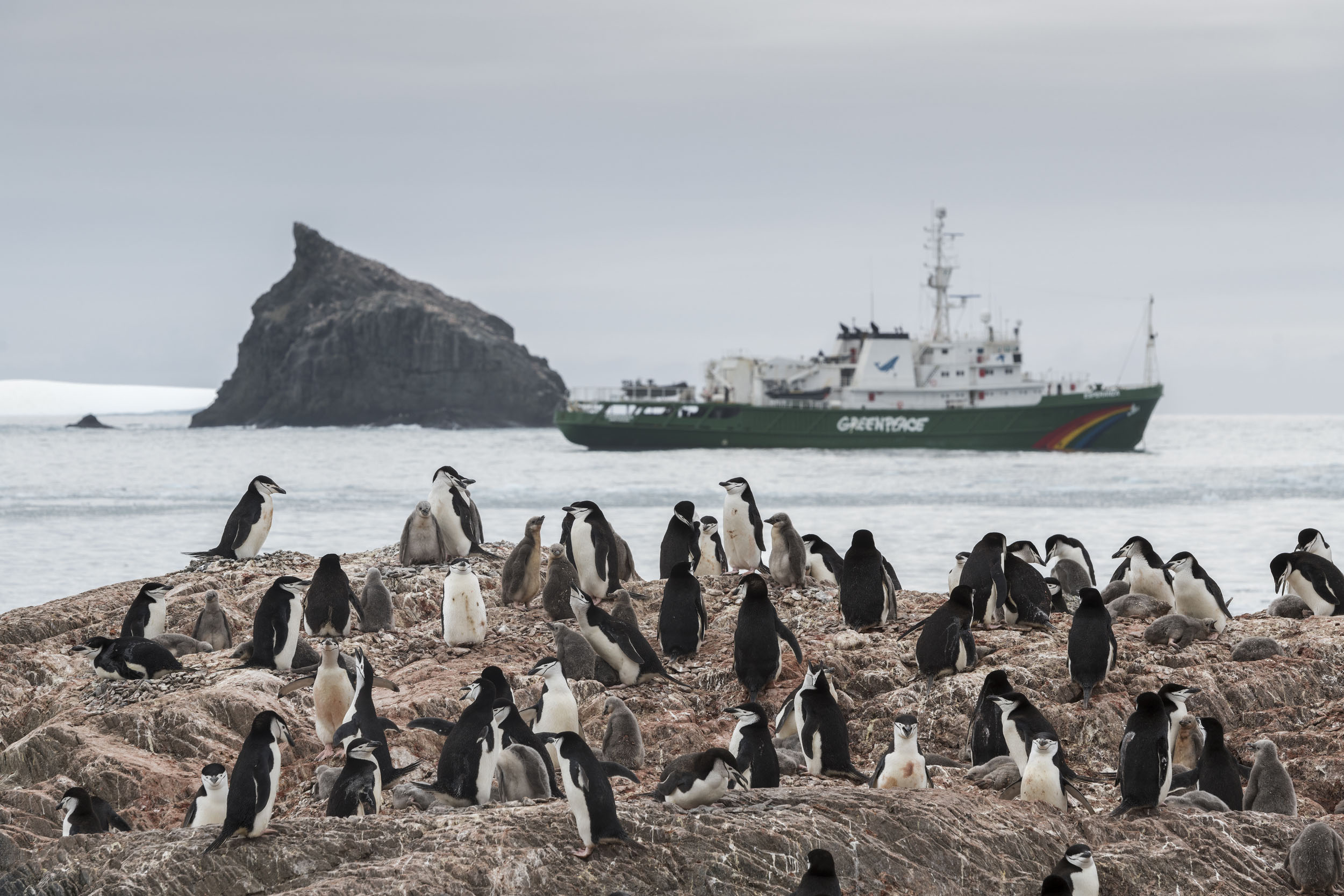
In January, Greenpeace returned to the Antarctic on the last stage of the Protect the Oceans Expedition, a year long pole to pole voyage. We teamed up with a group of scientists to investigate and document the impacts the climate crisis is already having in this area.
February – calling for ocean protection
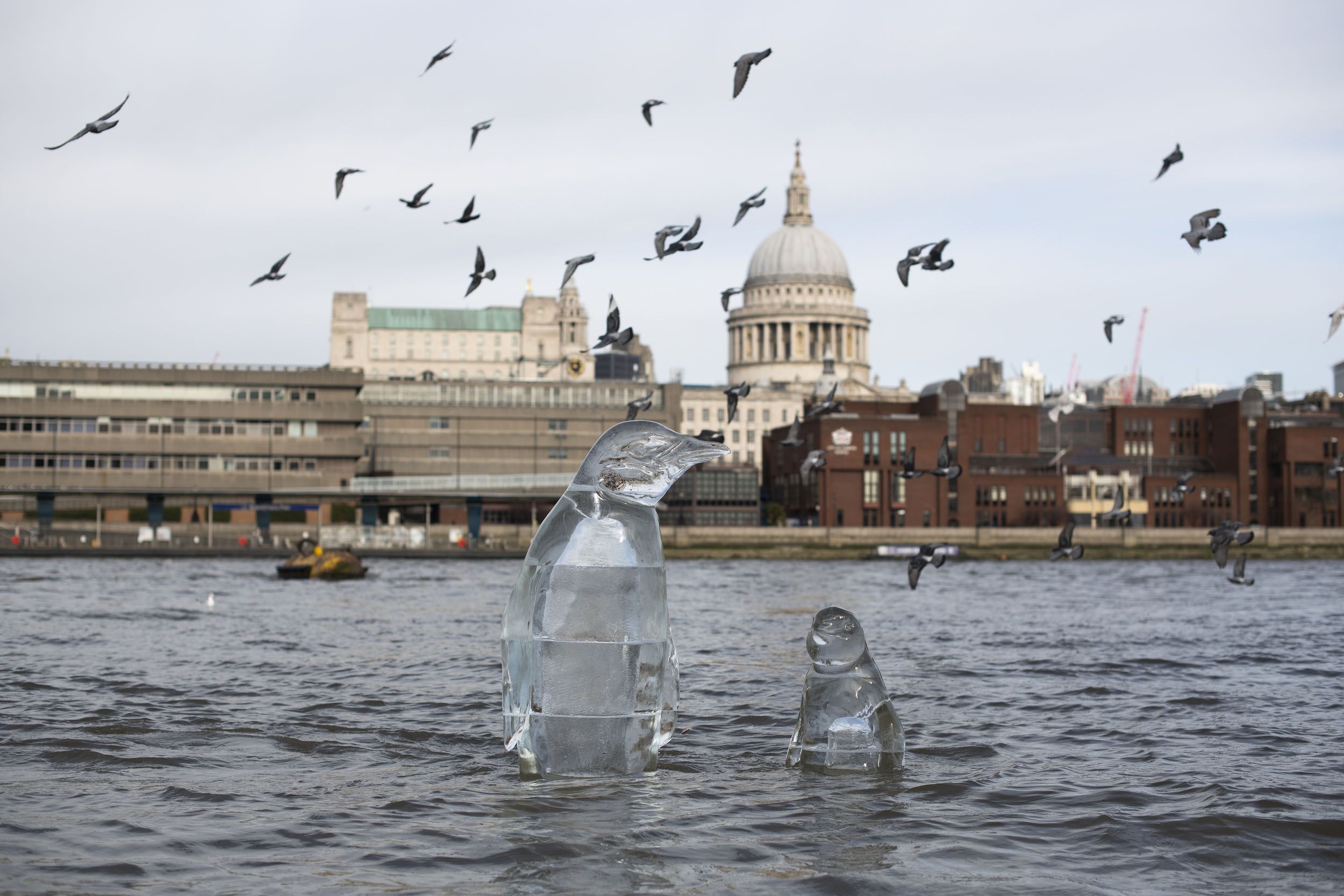
© David Mirzoeff / Greenpeace
Greenpeace activists installed a two-metre high penguin ice sculpture on the shore of the River Thames opposite St. Paul’s Cathedral. It was part of a campaign to highlight the threats to marine life as part of a global call by Greenpeace for greater action on ocean protection.
March – demanding an end to Barclays’ investment in fossil fuels
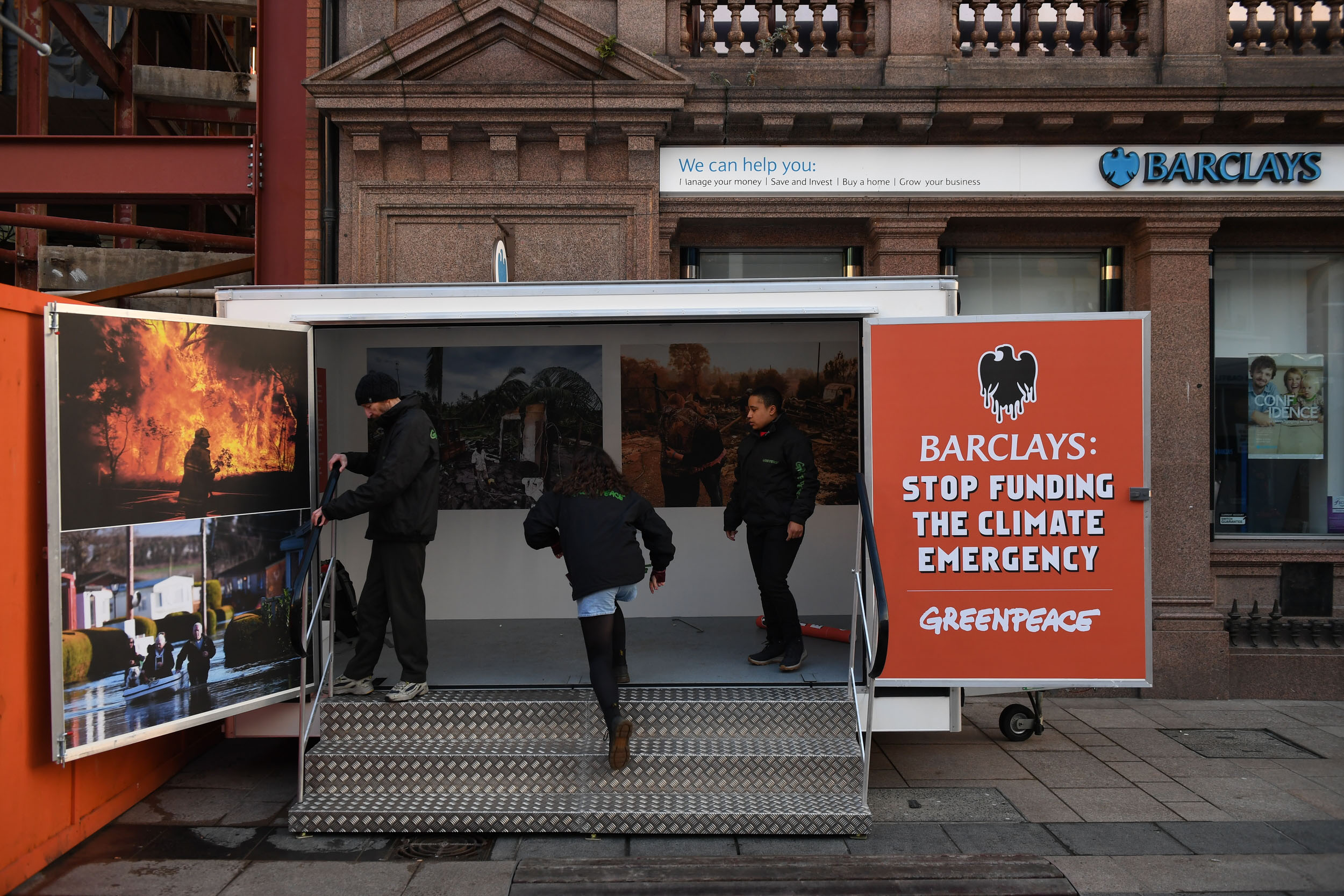
Pop-up exhibitions placed by Greenpeace activists blocked the access to major Barclays bank branches in Belfast, Cardiff, Edinburgh, London and Manchester. The exhibitions displayed photographs of some of the worst climate emergency disasters in the four years since the Paris Climate Agreement was signed. Pictured here is Belfast.
April – movement for a green future
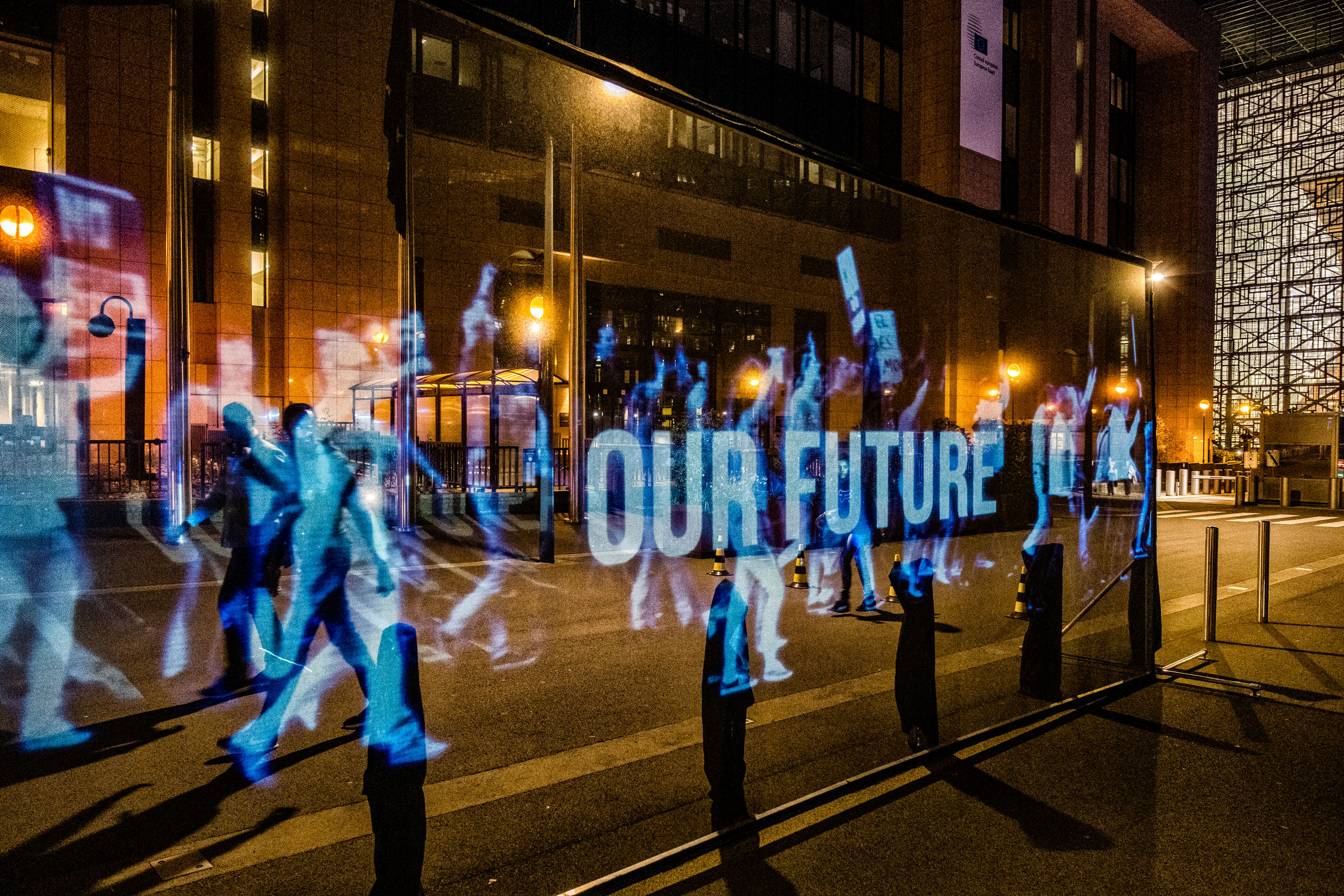
As Covid-19 protective measures were limiting public protest, a virtual march in front of the EU council building in Brussels sent the vital signal to European decision makers to invest in people and the planet, not polluters.
May – asking BP to keep it in the ground and go renewable
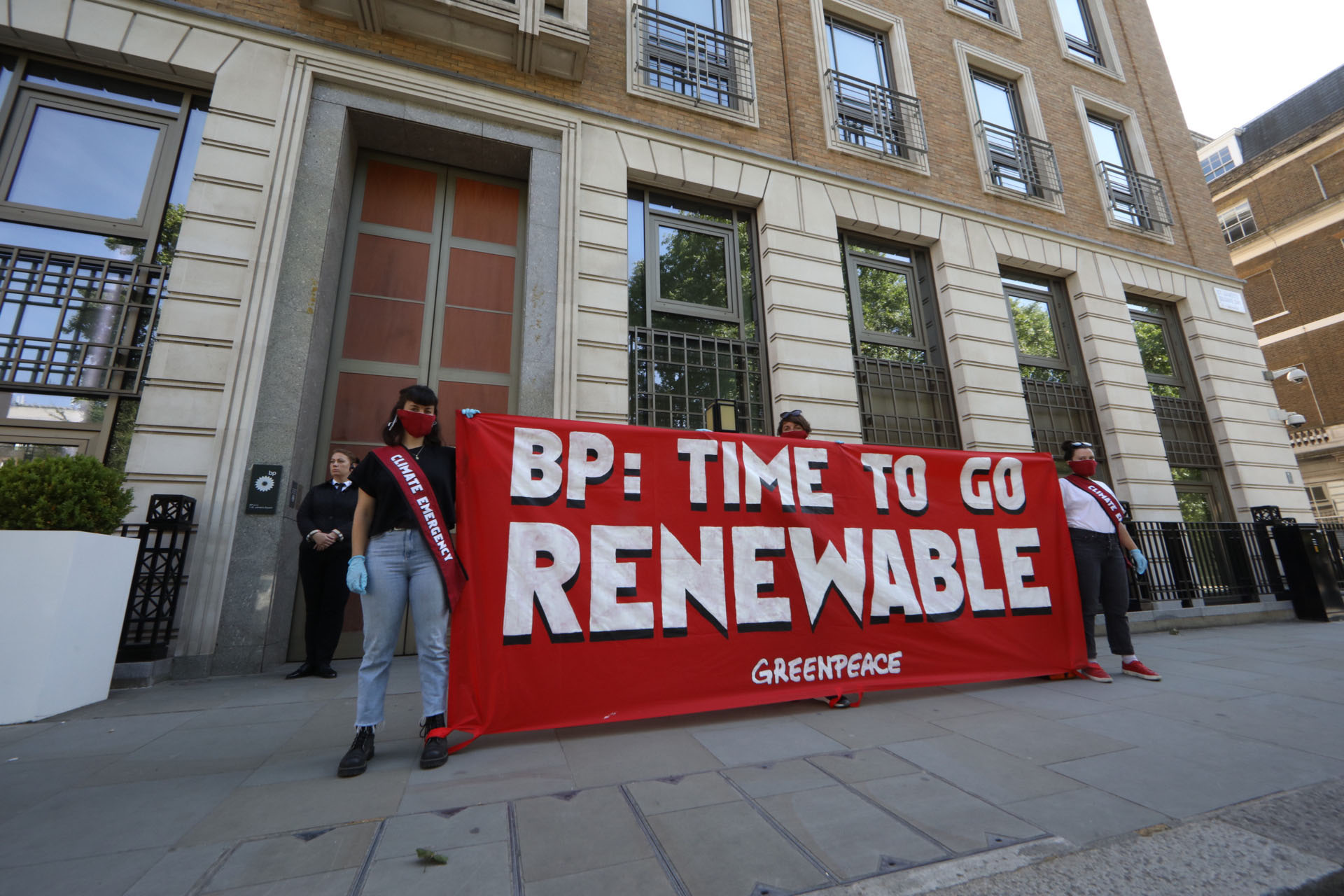
Greenpeace UK activists staged a socially distanced protest outside BP’s Annual General Meeting, which was broadcast from their London headquarters, asking the company to stop drilling for new oil and gas and switch to renewables.
Just a few months later, BP announced that it would cut its oil and gas production by 40% in the next decade, and massively increase its renewable energy investment. This is the first time ever that a major oil company has committed to keeping oil and gas in the ground.
June – studying the impacts of climate change on sea life
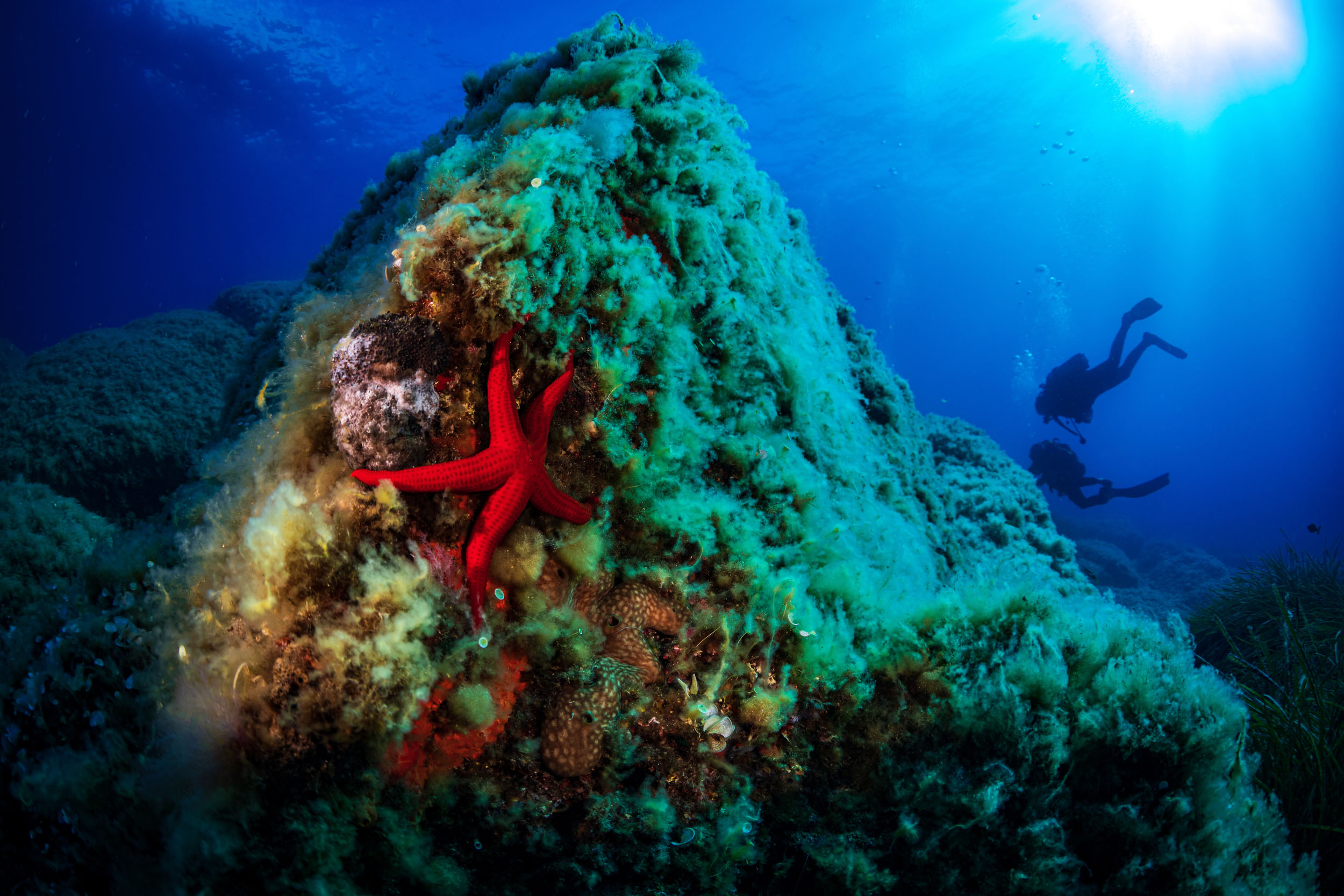
As part of the Defending Our Oceans Tour, Greenpeace placed a temperature monitoring station at Elba island, Italy, in the area of the Pelagos Sanctuary. Working with the University of Genova first project results’ indicated that rising temperatures are killing iconic underwater creatures.
July – calling for a green recovery and investment in public transport
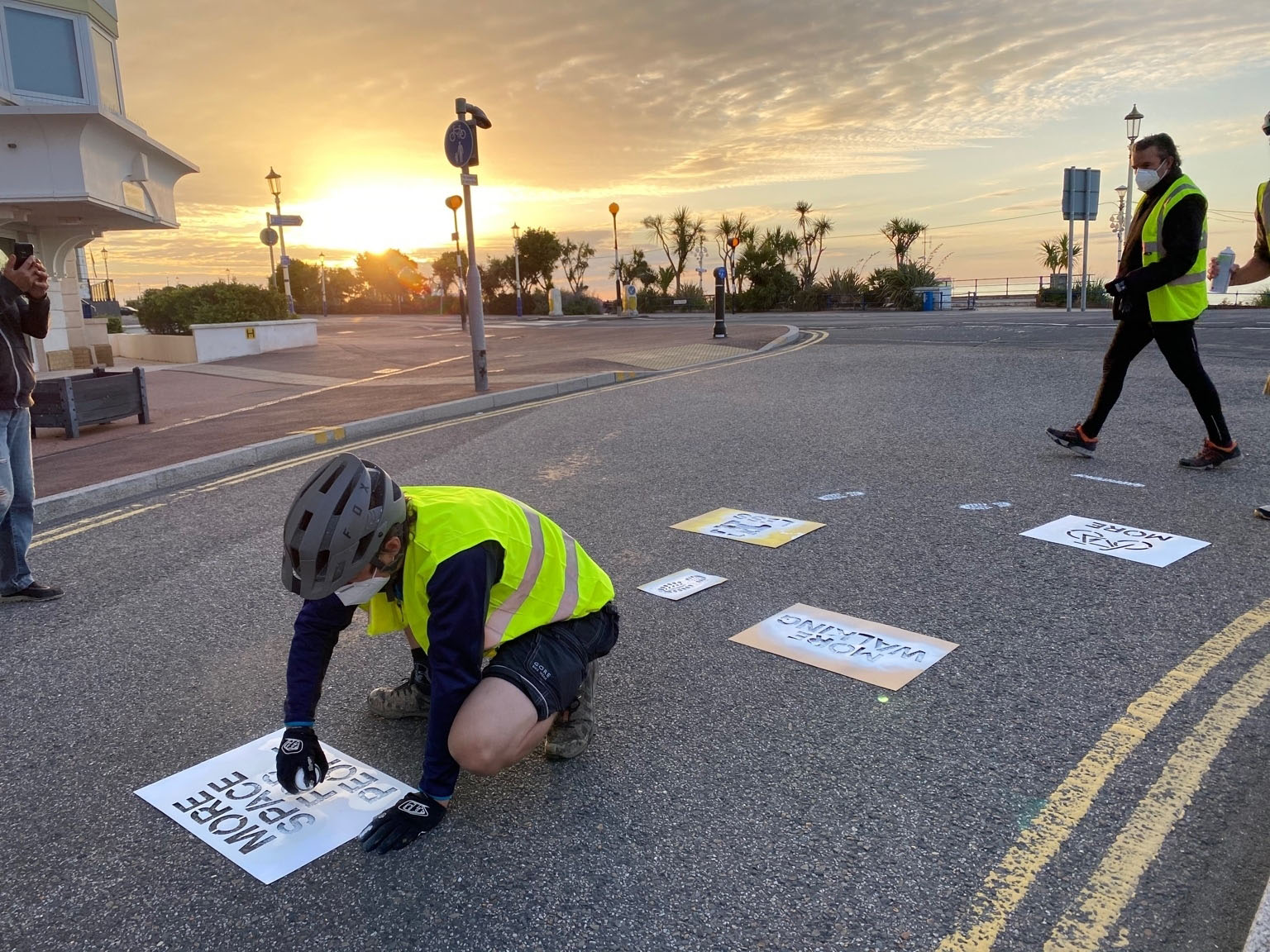
Greenpeace volunteers sprayed the messages ‘less cars, more bikes‘, ‘more space for people‘ and ‘more walking‘ in chalk on roads across the UK to call for a green recovery from the health crisis, including investment in local public transport, walking and cycling. Pictured here is Eastbourne.
August – monitoring fires and deforestation in the Amazon
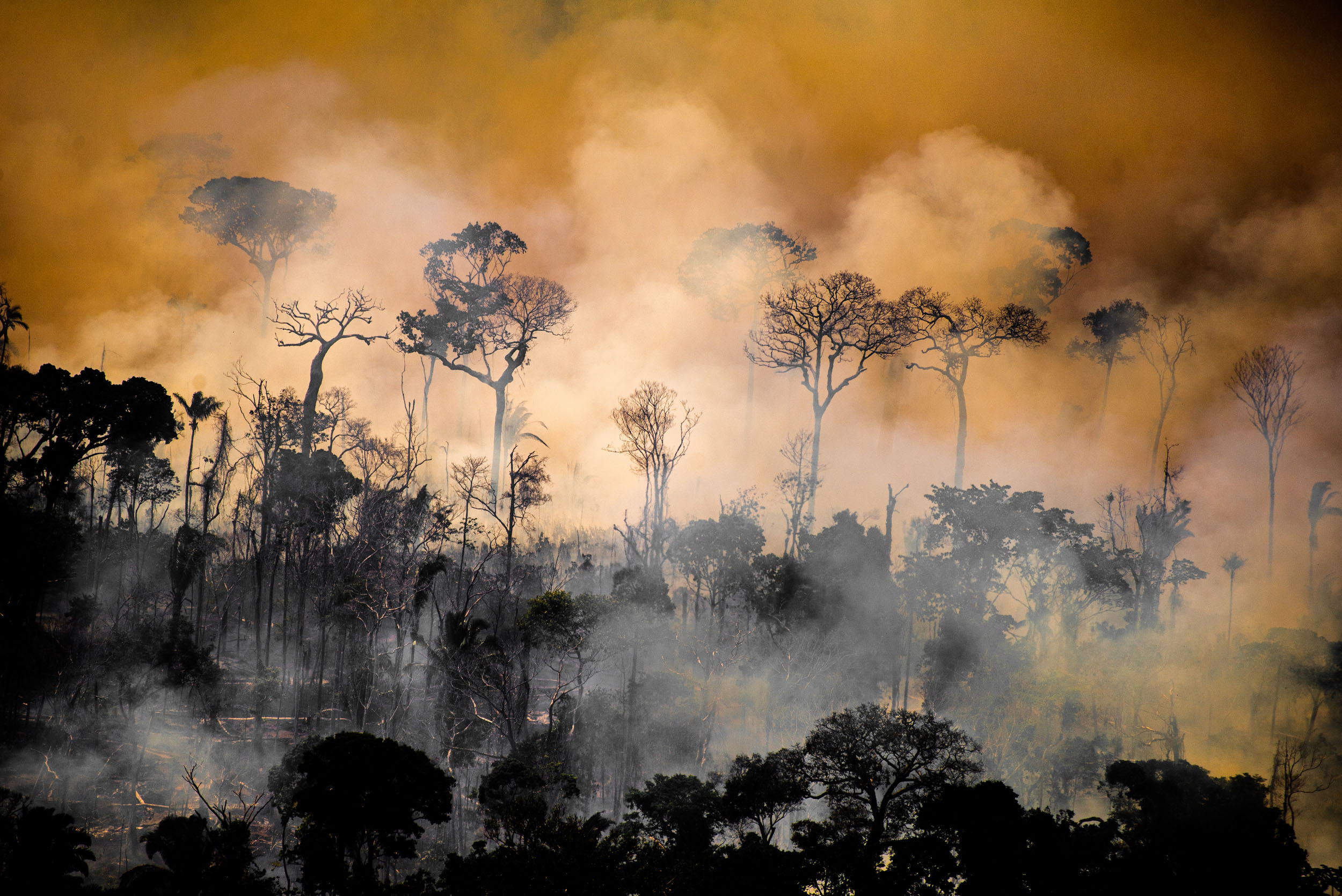
Every year, Greenpeace Brazil flies over the Amazon to monitor deforestation build up and forest fires. In August, 2020, the team found enormous destruction from fires in the states of Amazonas, Rondônia, Mato Grosso and Pará.
September – documenting the impact of climate change in the Arctic
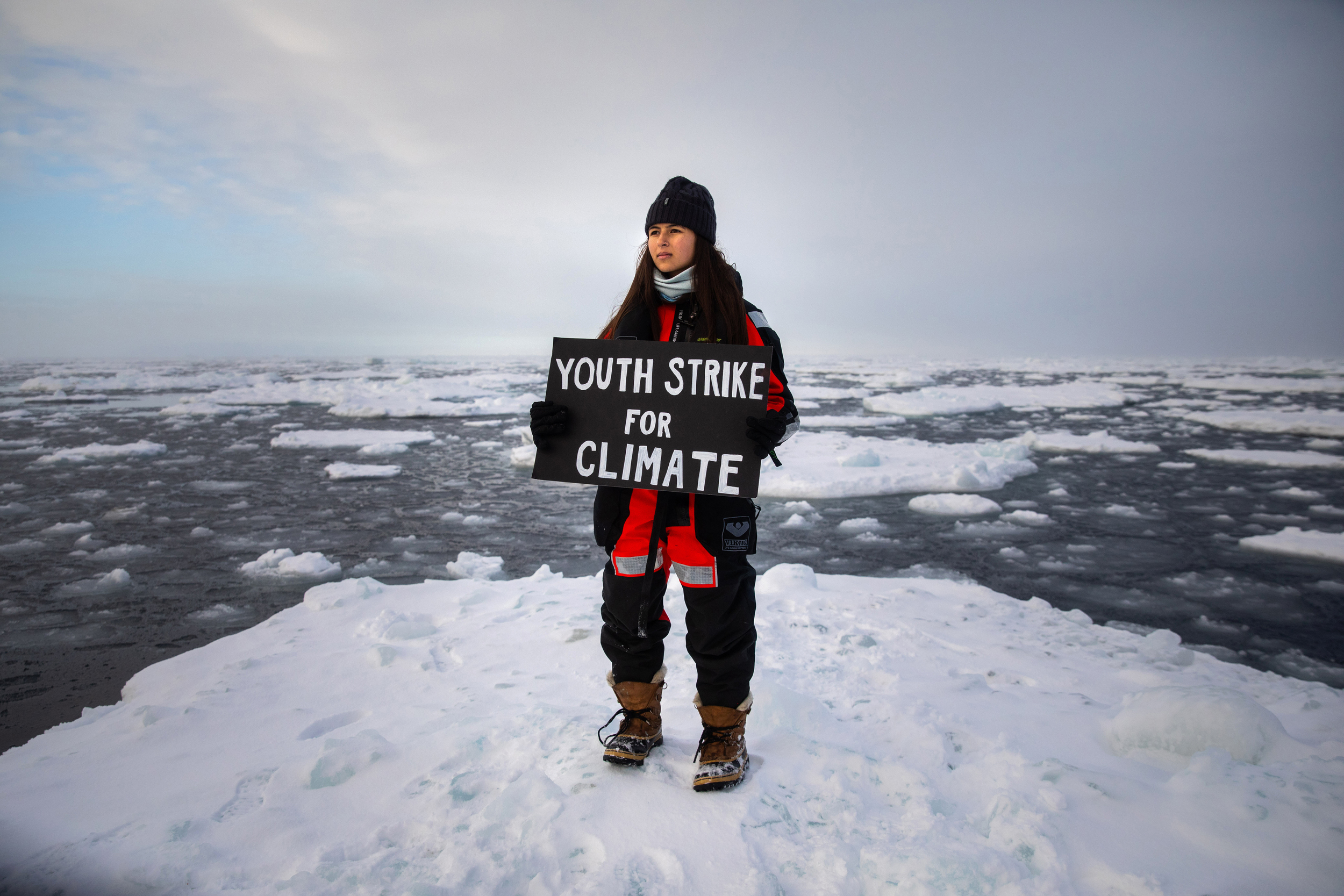
18-year-old environmental activist and campaigner Mya-Rose Craig visited the Arctic as part of the most northerly climate strike at 82.2° North. A Greenpeace team was in the region to document the impact of the climate crisis and investigate marine life in the region.
October – preventing destructive bottom trawling
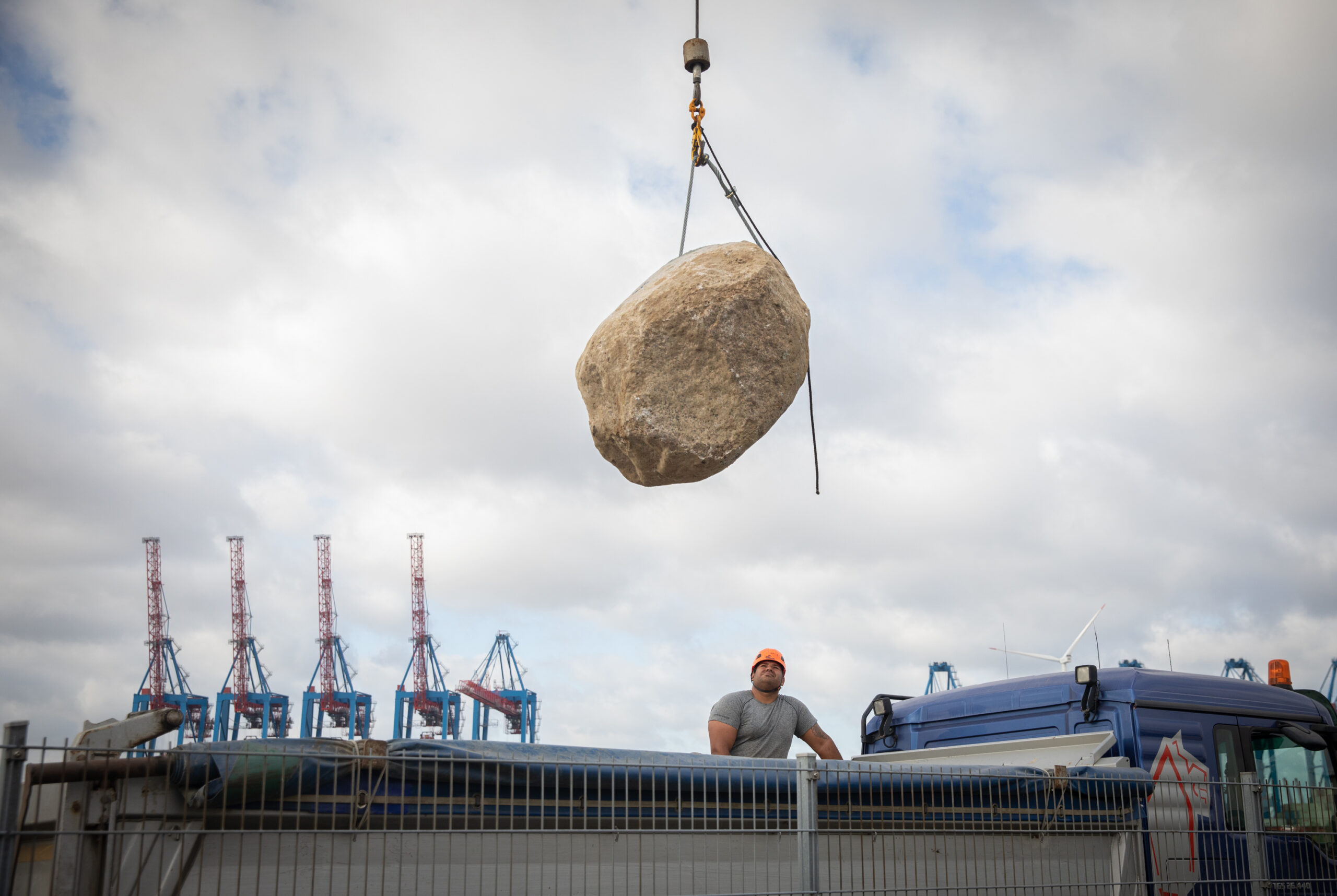
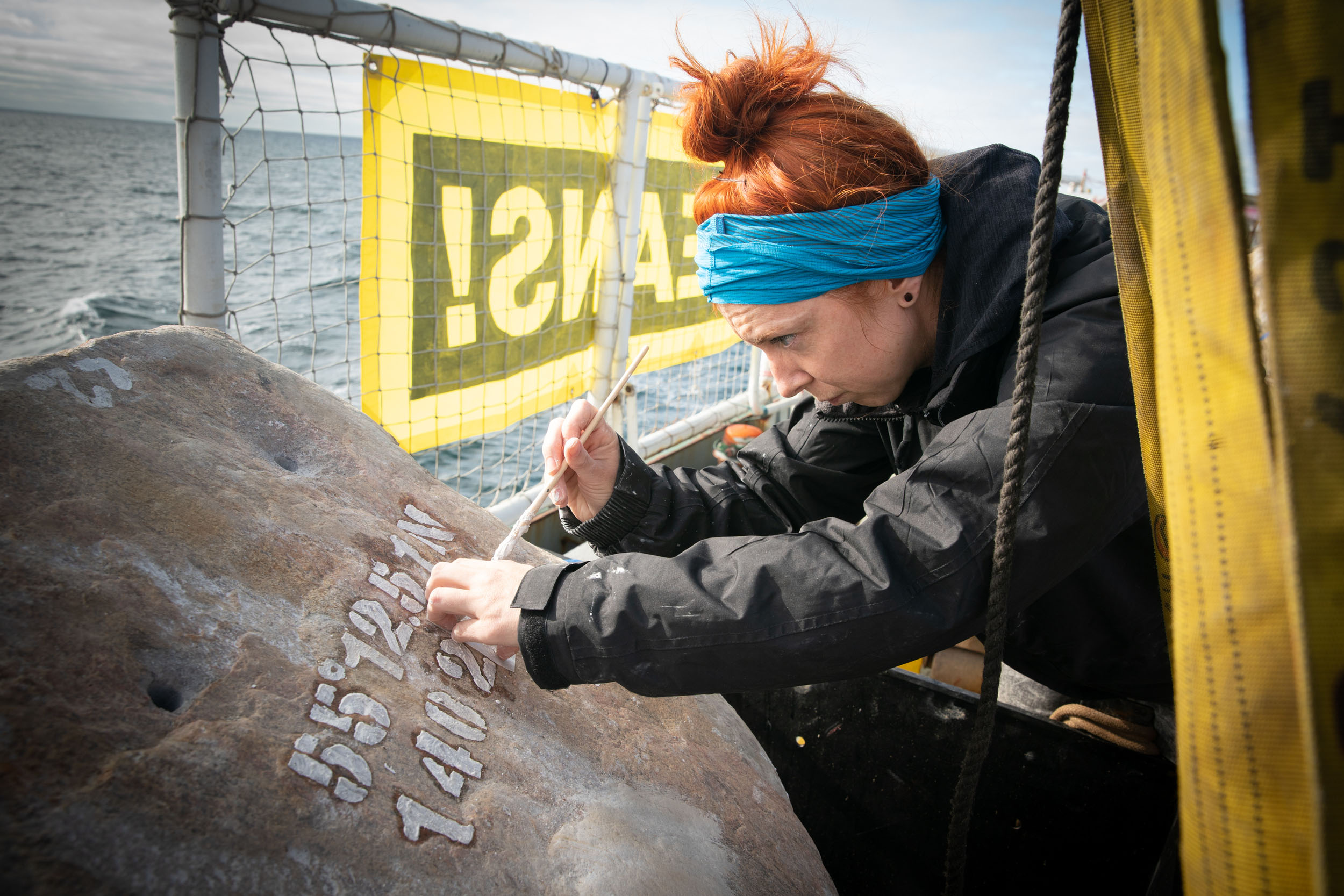
The crew of the Greenpeace ship Esperanza created a seabed ‘boulder barrier’ to stop harmful bottom-trawling in a 47 square mile area of the North Sea. Activists placed heavy granite boulders on the sea bed in the Dogger Bank region, making it impossible for industrial fishing ships to drag their nets along the bottom.
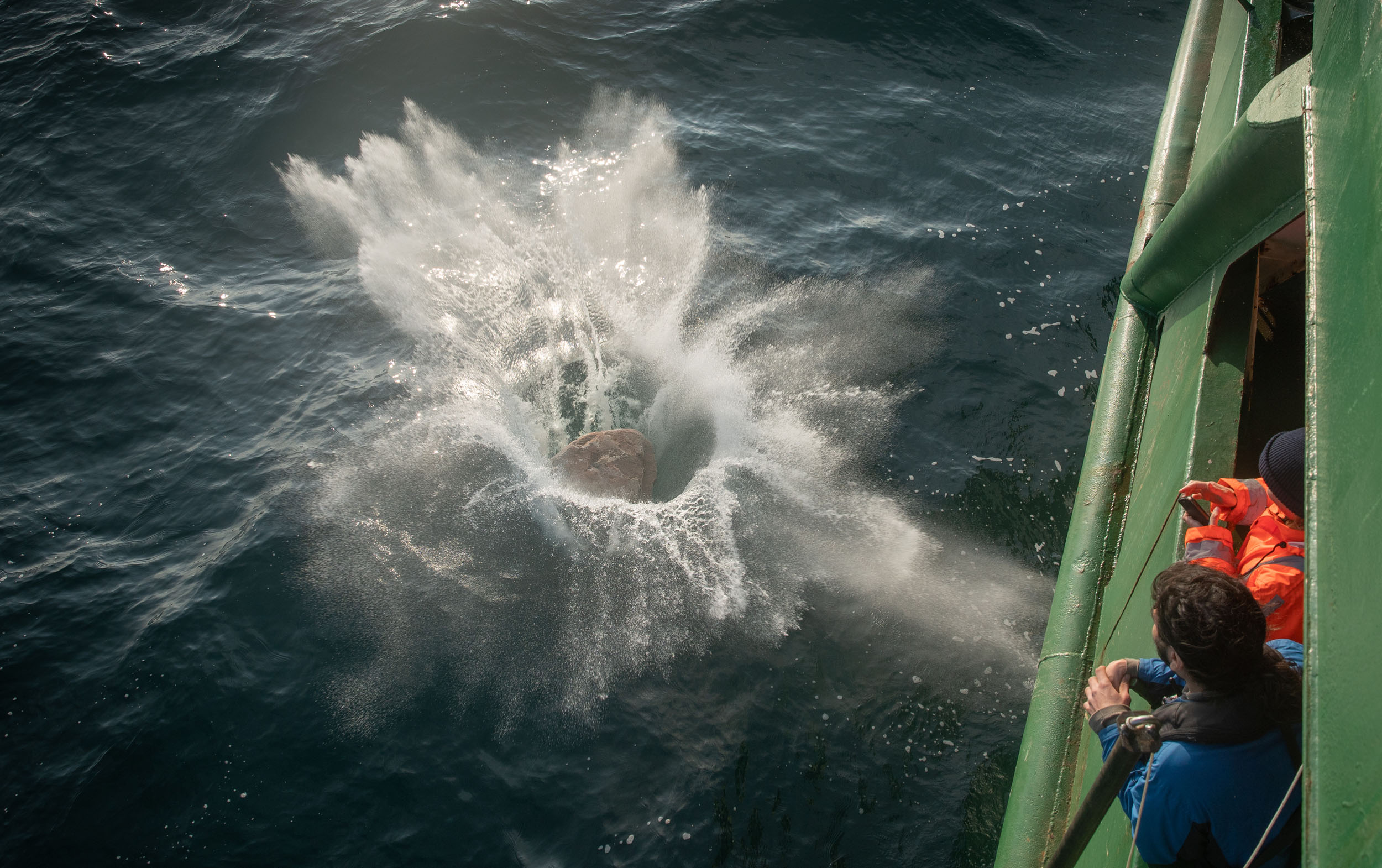
Dogger Bank is officially designated as a Marine Protected Area, but the government still allows destructive fishing in this and other supposedly protected areas.
November – raising awareness about Tesco’s part in forest destruction
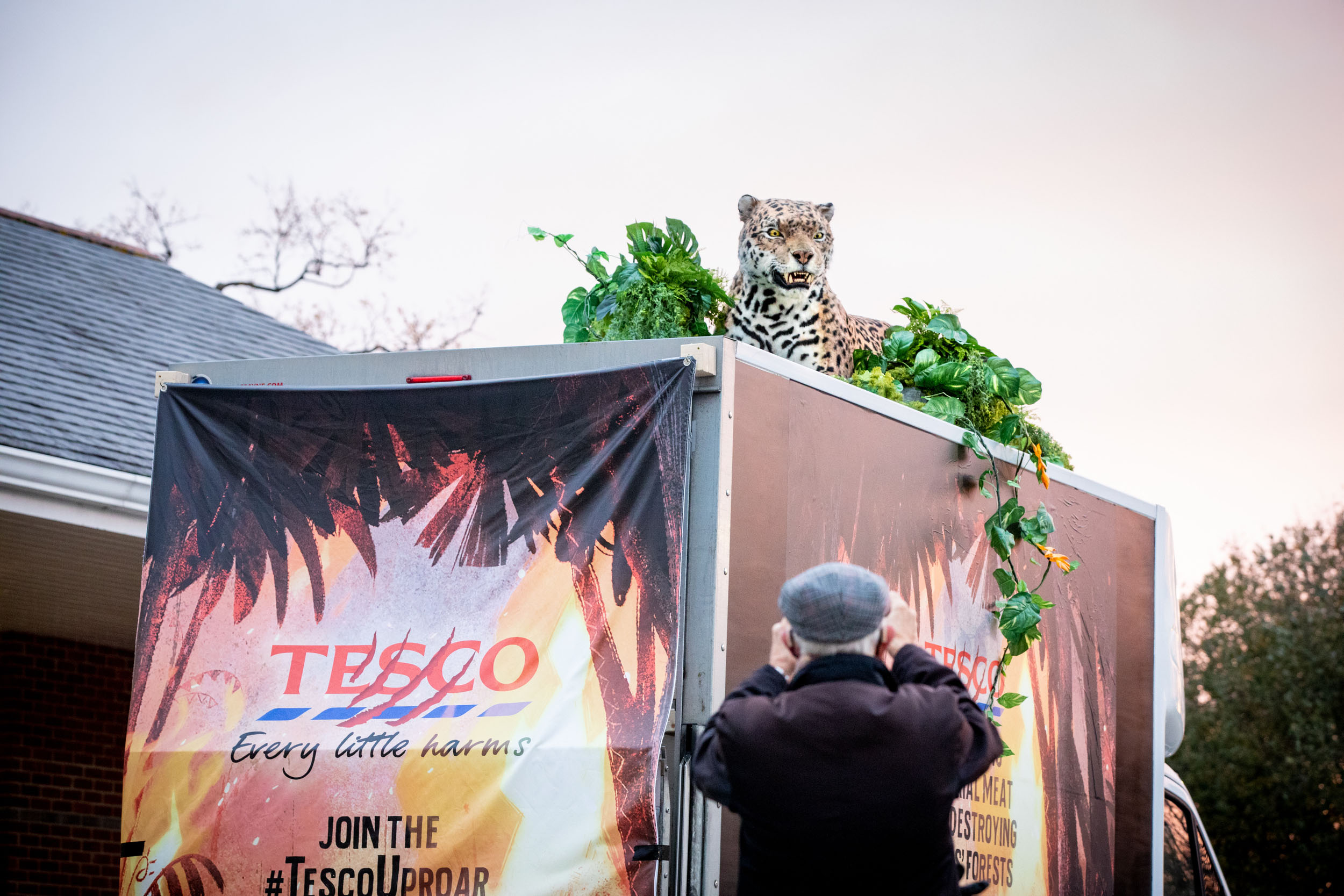
A life-size animatronic jaguar roared from the roof of what appeared to be a Tesco delivery van. Luna the jaguar greeted staff and customers at Tesco stores across the UK to highlight the environmental destruction caused by industrial meat sold by the supermarket chain. Pictured here is Tunbridge Wells.
December – demanding climate action on the anniversary of the Paris agreement
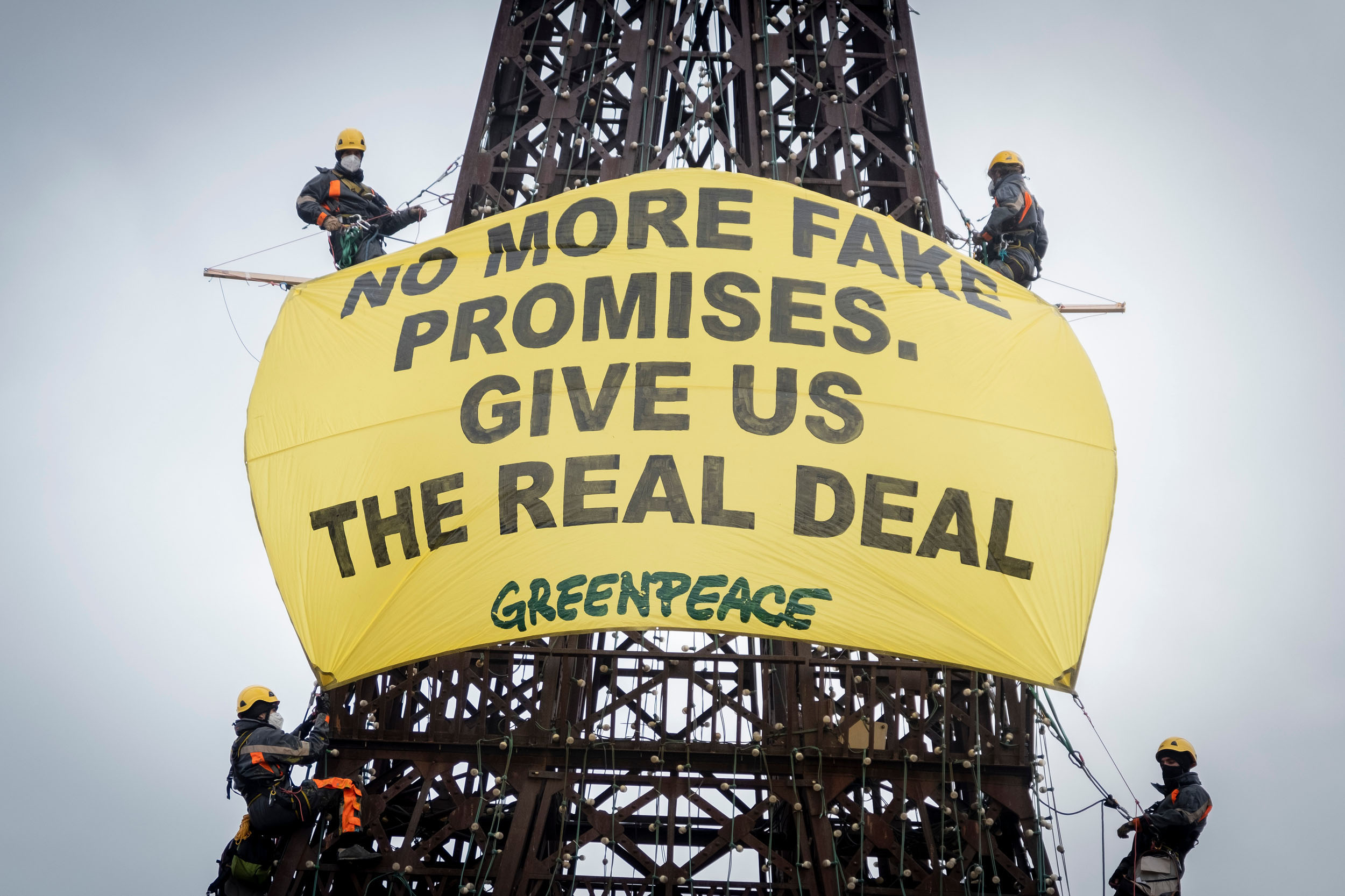
Greenpeace Spain activists scaled the replica of the Eiffel Tower in Torrejón de Ardoz (Madrid) on the fifth anniversary of the Paris climate agreement, reminding political leaders that more needs to be done to address the climate emergency.
From the whole Greenpeace crew – thank you
